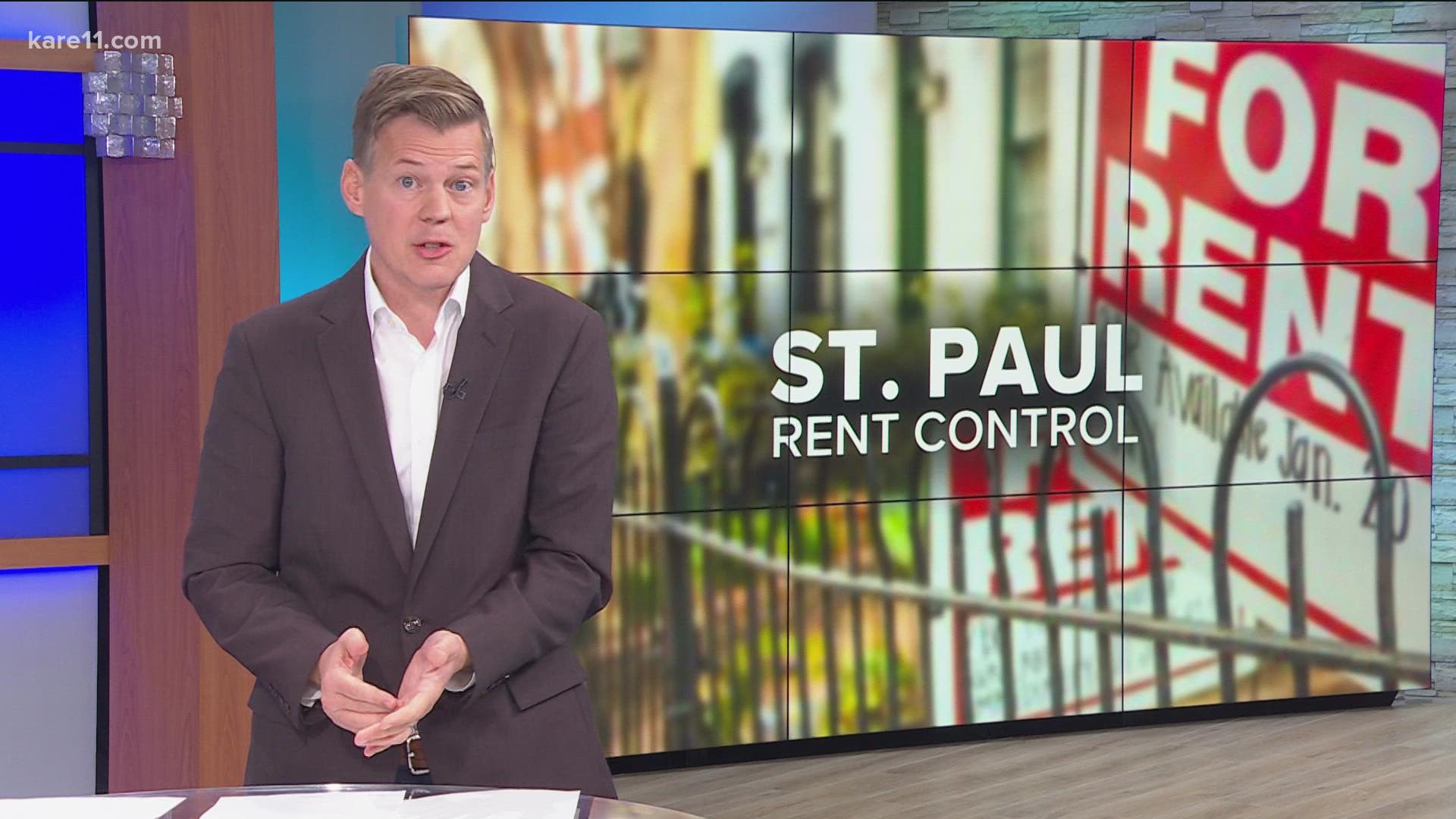ST PAUL, Minn. — A day after St. Paul voters passed one of the most stringent rent control ordinances in the nation, many basic questions about its implementation remain unanswered, including when it takes effect.
While the city charter states that an ordinance passed by referendum becomes effective immediately, the rent stabilization language passed by St. Paul voters includes an implementation date of May 1, 2022.
That prompted some renters to contact KARE11 and the city of St. Paul to ask whether their landlords could increase rent in the next few months. City leaders were unable to offer a decisive answer on Wednesday, even taking down a website it had created to answer questions about rent stabilization just hours after launching it.
"It could be something that lawyers fight about in court," said Max Nesterak, deputy editor of the Minnesota Reformer.
Nesterak, who has covered the rent control ballot measure extensively, says part of the reason why city leaders are struggling to answer questions is because they didn't write the ordinance.
"A majority of St. Paul's council members said that they would not vote for this ballot initiative," Nesterak said. "So now they're in this position, this uncomfortable position, of trying to enact a policy they didn't support."
Nesterak says there's a lot at stake because the St. Paul ordinance, as written, is among the most stringent in the country. It caps rent hikes at 3% per year and though landlords can seek exceptions, inflation isn't one of them.
"They can only seek exemptions for things like tax hikes or making renovations that bring the apartment up to code; not stainless steel appliances, not new bathrooms, just bringing the units up to code," Nesterak said. "What we see in rent control ordinances across the country is there's normally some movement. When prices go up, people allow rents to rise a little bit more. As we see more inflation happening now, because of supply chain issues, (the St. Paul ordinance) may pose a problem for landlords."
It could also pose a problem for developers because the 3% cap applies to all units, even new construction.
"The concern of not exempting new construction is that it will deter developers from building any new housing at all," Nesterak said. "I think one of the first real tests of this policy will be what happens at the St. Paul Ford Site, now called Highland Bridge. It's one of the biggest developments happening in St Paul history. It's 3,600 new units, 20% are slated to be affordable. I talked to a developer with Ryan Company and they said they're concerned that they may not be able to find investors in their project.
Proponents say, 'We're going to call the bluff on developers, we think St. Paul is a great city and they'll still want to build here.'"
Despite the unanswered questions, and uncertainty about implementation, St. Paul communications director Peter Leggett sent a statement to KARE 11 on Wednesday stating, “Now that residents have affirmed rent stabilization for our city, we look forward to engaging with community members to implement and improve upon this policy."

